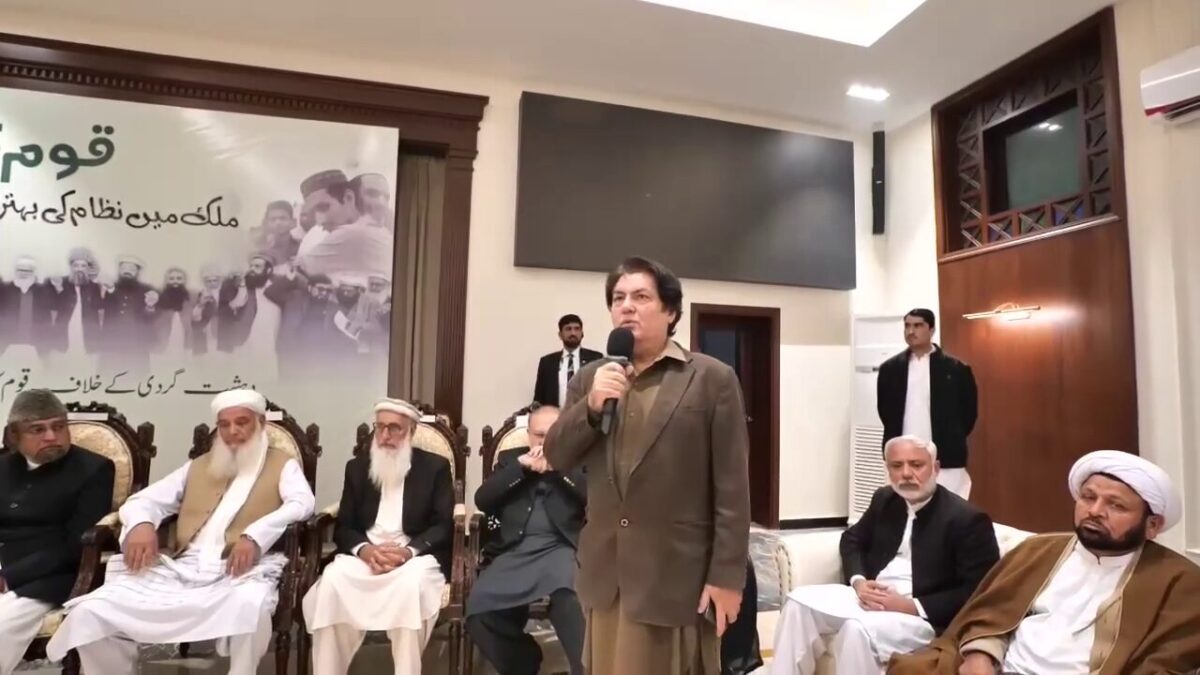A political and religious gathering in Peshawar, led by Ali Amin Gandapur, the chief minister of Pakistan’s Khyber Pakhtunkhwa province, has called for formal government-level negotiations with the Taliban to address rising security concerns.
In a joint statement following the meeting on Saturday, February 15, politicians and religious leaders urged the immediate start of talks with the Taliban as part of efforts to combat terrorism. Some participants emphasized that security in Pakistan is closely linked to stability in Afghanistan.
Gandapur announced that a jirga—a traditional council—would be formed to facilitate “focused and effective” negotiations with the Taliban.
‘This situation must end’
Khyber Pakhtunkhwa has been at the center of escalating attacks by Tehrik-i-Taliban Pakistan (TTP), a militant group that has intensified its operations in the region. At the Peshawar gathering, Gandapur highlighted the sacrifices made by the province in Pakistan’s fight against militancy.
“This province has been battling terrorism for decades,” he said. “Our struggle benefits all 250 million people of Pakistan, and yet it is the people and police of Khyber Pakhtunkhwa who bear the brunt of this fight. This situation must end.”
Despite the provincial leadership’s push for negotiations, Pakistan’s federal government has yet to grant permission for Khyber Pakhtunkhwa to engage in direct talks with the Taliban. In recent years, Pakistani delegations have repeatedly met with Taliban officials in Afghanistan to address the TTP insurgency, but no lasting resolution has been reached.
Tensions between Pakistan and Taliban
Pakistan has accused the Afghan Taliban of harboring TTP fighters and providing them with safe havens, a claim that has strained relations between Islamabad and Kabul. The Pakistani Foreign Ministry recently stated that TTP fighters are operating from Afghan territory, complicating security cooperation between the two countries.
A recent United Nations Security Council report further alleged that the Taliban provide financial and logistical support to TTP, including monthly payments of $43,000 to the group’s leadership. The report also suggested that the Taliban have coordinated TTP fighters with Al Qaeda and other militant groups in efforts to counter the Islamic State’s Khorasan branch (ISIS-K).
Taliban have repeatedly denied the presence of militant groups, including TTP, in Afghanistan and have dismissed accusations of cross-border attacks. They have yet to officially respond to the Peshawar meeting’s resolution, but they have consistently maintained that Pakistan’s security issues are an internal matter.
Despite these denials, Pakistani media recently reported that the Taliban have begun relocating the families of TTP fighters from eastern Afghanistan to other parts of the country, in what some analysts interpret as an attempt to appease Islamabad.





